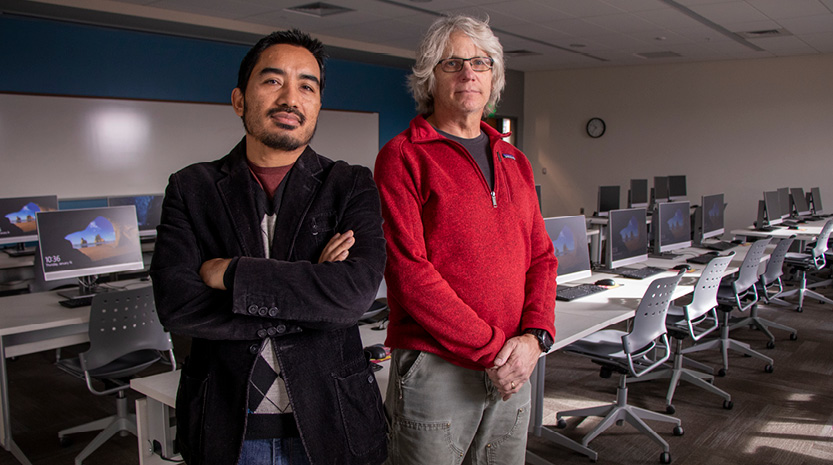Computer science program moves to the engineering department to better prepare students for industry changes
In July 2019, the Colorado Mesa University computer science program found a new home in the university’s expanding Department of Engineering — now the Department of Computer Science and Engineering.
Moving the program from the Department of Mathematics and Statistics to engineering makes a lot of sense, according to Scott Kessler, PhD, department head of computer science
and engineering.
“Computer science has morphed over time,” he said. “What began as a part of the math and business departments has grown in importance for mechanical engineers. They need to learn coding and programming.”
Facilitating this change is the rise of mechatronics, a multidisciplinary branch of engineering combining electrical and mechanical systems.
“There isn't much of anything you touch that doesn't include embedded electronics,” said Kessler, pointing to everyday items like coffee makers and cars. “Because code drives the hardware, the design process is not linear. We see a serious need for engineers that understand electrical engineering and can write code, and computer science grads who can write code and understand how hardware works.“
Currently, about 15 CMU students, a combination of freshmen and sophomores, are working toward an electrical and computer engineering (ECE) degree, which is granted in partnership with the University of Colorado Boulder.
In addition to this new degree, CMU ECE students can augment their degrees with a professional certificate in cybersecurity through hands-on training at the CMU Cybersecurity Center.
At the Cybersecurity Center students learn how to test and evaluate code to make sure it’s secure. In other words, they hack code to identify vulnerabilities and to develop the most secure designs and products possible.
Ram Basnet, PhD, is an associate professor of computer science who sees the center as facilitating connections between the university, students and local businesses.
“Our goal is to provide situations for hands-on training and research within our community,” said Basnet. “We want to provide a common place to talk about cybersecurity.”
In addition to this local emphasis, Basnet is excited about the growth of the program and the progress being made toward becoming a Center of Academic Excellence in Cyber Defense, as recognized by the federal government. This will open up possibilities for federal research grants, additional scholarships and, ultimately, job opportunities for students.
“It is not easy to get this designation,” explains Basnet. “It takes time, but we have a university commitment from the top down. We will make it happen.” •
